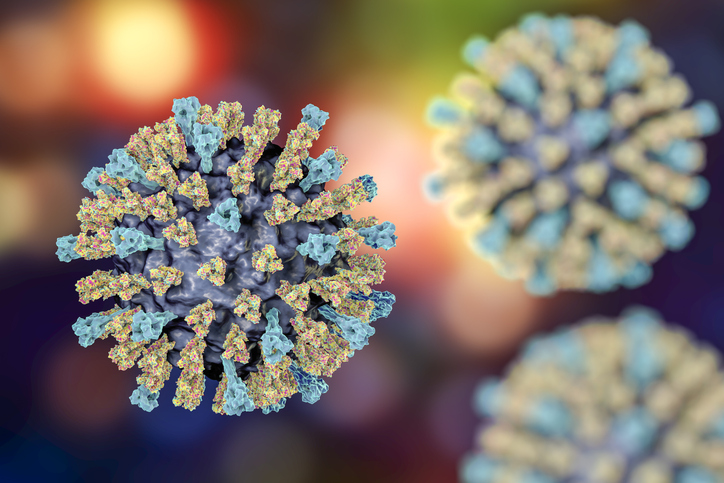RAPID CITY, S.D. (KELO) — South Dakota has confirmed its first measles case since 2015.
Health officials from the South Dakota Department of Health and Avera Health spoke on the next steps they are taking to combat any potential spread after a case was confirmed in Pennington County.
On Thursday, the DOH announced an adult Pennington County resident developed a measles infection after traveling internationally. They tested positive for measles at Monument Health in Rapid City, according to a DOH news release.
Dr. Joshua Clayton, State Epidemiologist, said the reason they are seeing measles pop up now is due to individuals importing it back to the U.S.
“That’s what we have seen across the US in other public health jurisdictions where we have seen over 160 cases now of measles imported into the US,” said Clayton in an interview with KELOLAND News.
Dr. Kevin Post, Chief Medical Officer with Avera Health, shared the symptoms of measles.
“Measles is a viral infection that is extremely contagious. When people get exposed to measles they will develop symptoms about 10-14 days later,” Post said in an interview with KELOLAND News. “Typically cold like symptoms runny nose, watery eyes, sneezing, and a rash about 3-5 days in which starts in the face and spreads through the body.”
Post said in most cases measles goes away on its own.
“Measles itself is fairly self-limiting meaning it will resolve on its own without any direct treatment,” Post said. “Why we care so much about measles is what can be the secondary complications such as ear infections, pneumonia, and encephalitis which is inflammation around the brain which can lead to effects on people’s cognitive functioning, hearing, vision, and can lead to long term complications.”
Clayton said measles can spread easily.
“There is always a risk of potential transmission to others that’s highest to individuals within that persons household as well as individuals who were in close contact or share a space with that individual,” said Clayton.
The time periods and locations where other community members may have been exposed according to a DOH news release are at the Black Hills Urgent Care on 741 Mountain View Rd. from 10 a.m. to 2:30 p.m. MT on July 9. and the Monument Health Rapid City Emergency Department waiting room from 5 p.m. to 12 a.m. MT on July 12.
According to the CDC website, “As of July 11th, a total of 167 measles cases were reported by 24 jurisdictions: Arizona, California, Florida, Georgia, Illinois, Indiana, Louisiana, Maryland, Michigan, Minnesota, Missouri, New Hampshire, New Jersey, New Mexico, New York City, New York State, Ohio, Oregon, Pennsylvania, Vermont, Virginia, Washington, West Virginia, and Wisconsin.”
South Dakota will be added to that list, Clayton shared what officials are doing to combat any potential spread.
“The primary role of the health department is to make sure people who have had known exposure to this individual with measles, that they have been contacted and that we are assessing their status, whether they have had two doses of the measles vaccine and to monitor their symptoms for 21 days,” said Clayton.
Post said the risk of infection for vaccinated and unvaccinated individuals varies.
“Measles was very common back in the 1980s, by the year 2000 it was considered almost completely eradicated,” Post said. “The risk if you are exposed is fairly high to get that illness if you are unvaccinated because it is so highly contagious. Those that are fully vaccinated the risk is extremely low I believe it’s less than 3%.”
Clayton said if you plan on traveling it’s never a bad idea to check in with your doctor.
“You should talk to them about where you may be traveling. You might benefit from updating some of your vaccinations or getting vaccines that you may not have had before depending on the location you are going,” said Clayton.


